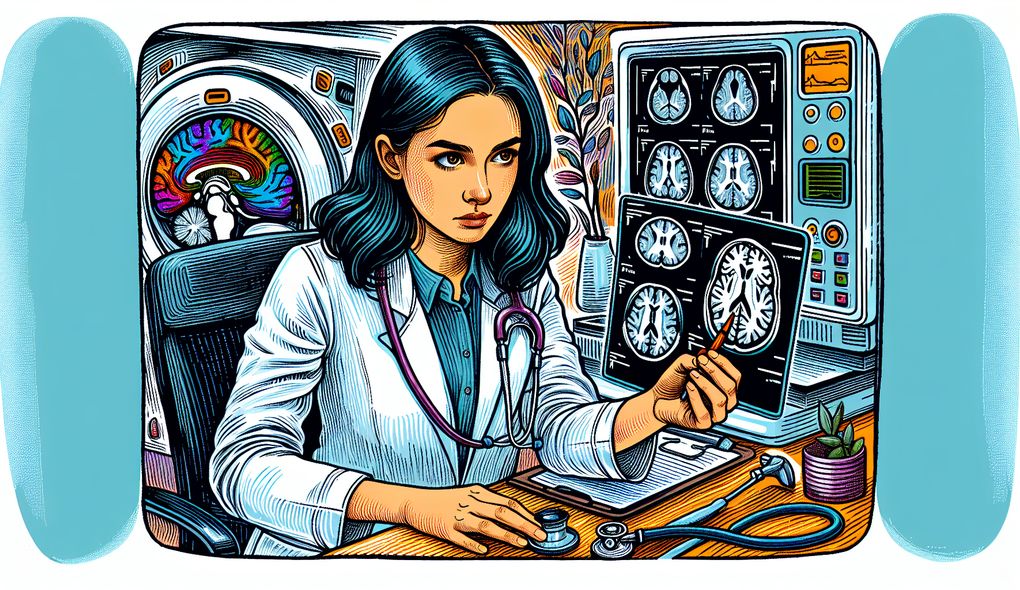Describe a situation where you had to think critically and problem-solve to provide the best care for a patient with a neurological disorder.
INTERMEDIATE LEVEL

Sample answer to the question:
In my previous role as a Neuroscience Nurse Practitioner, I encountered a situation where I had to think critically and problem-solve to provide the best care for a patient with epilepsy. The patient, a 45-year-old man, was experiencing frequent seizures that were not responding well to his current medication regimen. I analyzed his medical history, reviewed his medication list, and consulted with the neurologist to identify potential triggers for his seizures. After careful consideration, I recommended a change in his medication, adjusting the dosage and frequency to better control the seizures. I also suggested lifestyle modifications, such as implementing a stricter sleep schedule and avoiding certain triggers like alcohol and caffeine. By closely monitoring the patient's progress and collaborating with the healthcare team, we were able to effectively manage his seizures and improve his quality of life.
Here is a more solid answer:
During my experience as a Neuroscience Nurse Practitioner, I encountered a complex case involving a patient with Parkinson's disease who was experiencing difficulties with movement and daily activities. To provide the best care, I conducted a thorough assessment of the patient's condition, reviewed their medical history, and collaborated with a multidisciplinary team, including physical therapists and social workers. Together, we developed an individualized care plan that focused on optimizing their medication regimen, implementing exercise and physical therapy, and addressing any psychological or social factors affecting their well-being. Additionally, I provided education and support to the patient and their family, empowering them to actively participate in their care and make informed decisions. Through ongoing monitoring and adjustments to the care plan, we were able to improve the patient's mobility, reduce their symptoms, and enhance their overall quality of life.
Why is this a more solid answer?
The solid answer provides a more comprehensive description of a situation where the candidate had to think critically and problem-solve for a patient with a neurological disorder. It incorporates specific details, demonstrates the required skills and abilities, and highlights collaboration with a multidisciplinary team. However, it could provide more specific examples of leadership and mentoring skills.
An example of a exceptional answer:
In my role as a Neuroscience Nurse Practitioner, I encountered a challenging case involving a 30-year-old patient with multiple sclerosis (MS) who was experiencing severe fatigue and limited mobility. Recognizing the impact on the patient's daily life, I took a comprehensive approach to address their needs. Firstly, I collaborated with the patient's neurologist, orthopedic specialist, and physical therapist to develop a holistic care plan. This plan included a combination of medication adjustments, regular physical therapy sessions, and lifestyle modifications. To address the patient's fatigue, I incorporated energy conservation techniques, such as teaching the patient how to prioritize activities and rest periods throughout the day. Moreover, I offered emotional support and connected the patient with a local MS support group to enhance their overall well-being. Through ongoing monitoring and adjustment of the care plan, we observed significant improvements in the patient's mobility and reduction in fatigue, enabling them to regain independence and quality of life.
Why is this an exceptional answer?
The exceptional answer provides a highly detailed and comprehensive description of a situation where the candidate had to think critically and problem-solve for a patient with multiple sclerosis. It demonstrates a thorough understanding of the patient's needs and incorporates multidisciplinary collaboration. The answer also highlights the candidate's ability to go beyond clinical care by addressing emotional and social aspects.
How to prepare for this question:
- Familiarize yourself with various neurological disorders, their symptoms, and treatment approaches.
- Research case studies or complex patient scenarios to practice critical thinking and problem-solving skills.
- Reflect on your previous experiences working with patients with neurological disorders and identify specific examples to showcase during the interview.
- Brush up on your knowledge of electronic medical records and healthcare IT systems, as they play a crucial role in managing patients' care.
- Develop a strong understanding of the importance of collaboration and teamwork in a multidisciplinary healthcare setting.
What are interviewers evaluating with this question?
- Critical thinking and problem-solving abilities
- Strong clinical skills in neurology and patient care
- Ability to work collaboratively in a multidisciplinary team environment
- Leadership and mentoring skills

